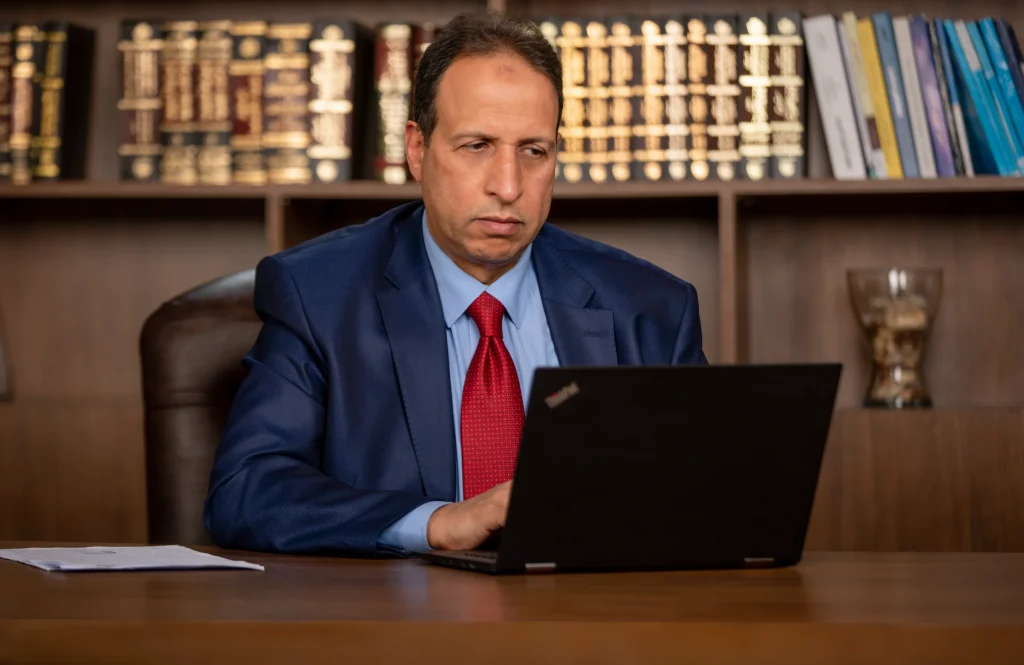Divorce can be a challenging and emotional experience for couples, especially when children are involved. In Islam, child custody after divorce is a crucial and sensitive issue that requires careful consideration and adherence to Sharia law.
The Islamic perspective on child custody aims to ensure the welfare and comfort of the child while preserving each parent’s rights and responsibilities to raise their children. However, the process of determining child custody can be complex and overwhelming for those unfamiliar with Islamic family law.
That’s why in this blog, we’ll explore the basics of child custody after divorce in Islam for English-speaking readers.
We’ll delve into the different types of custody arrangements, the legal framework governing them, how they’re decided upon, and factors considered in determining which parent gets the right to custody.
So whether you’re going through a divorce or simply interested in understanding this topic better, keep reading to learn more about child custody after divorce in Islam.
1. Custody of Children in Islamic Law
In Islamic law, child custody after divorce is subject to the court system where the spouses are located. Both parents have an equal right over the child after divorce, but in the case of a minor child, the mother possesses the priority right of child custody so long as she does not remarry.
Islamic judges, even Muslim judges, have to hear both sides to decide the case whether it involves a mother’s or father’s petition for custody. Unlike in American civil law, the doctrine in Islamic law automatically grants physical custody of a child to the mother. This is because the mother will be more compassionate towards the child.
However, the age at which this doctrine applies varies, and there are certain conditions for the mother’s petition for custody. At all times, the father of the child is responsible for maintaining the child, and in the absence of the father, the paternal grandfather, if he chooses, custodial rights of the children in Islam. Compassion and ethics play a significant role in child custody decisions in Islam.
2. Equal Rights of Parents in Minor Child Custody
It’s important to note that in Islamic law, custody of a minor child is based on the principle that it’s the right of the child and not of either parent. Both parents have an equal rights over their children after a divorce, and custody is based on the distribution of equal rights, with one for the husband and one for the wife. All the schools of Muslim law recognize the father’s right under positive law.
If there’s no mutual consent, both parents continue to share legal child custody until the minor has reached the age of majority. Despite this, divorced mothers who remain unmarried have a greater right to raise a child in Malaysia according to Islamic family law.
Factors affecting the mother’s custody rights vary depending on the Islamic judge’s decision, but it’s essential to consider the child’s best interests and the parents’ ability to provide for them. Ultimately, compassion and ethics should play a significant role in all child custody decisions.
3. Role of Islamic Judge in Child Custody Cases
When it comes to child custody cases, an Islamic judge has an important role to play. In Islamic law, the custody of children is subject to court decisions, even if both spouses are Muslim. The judge must consider the well-being of the child and hear both sides before making a decision.
While mothers have a right to custody, this may be forfeited if they remarry. The father’s responsibility for child maintenance is also considered. When considering custody disputes, the judge may take into account factors such as the child’s age, gender, and the capability of the parent to provide for the child.
It’s important to remember that compassion and ethics play a crucial role in these decisions to ensure that the child’s welfare is prioritized. The differences between Islamic and American law on child custody also need to be taken into account in the event of an international divorce.
4. Mother's Right to Custody in Islam
In Islamic law, the mother has a priority right to custody of her children, regardless of their gender, as long as she does not remarry. However, if she does remarry, her right to custody is forfeited. In the case of a minor child, both parents have an equal right over the child after divorce.
If there is no mutual consent, the family court system will decide the custody issue. Islam has a strong emphasis on the importance of compassion and ethics in child custody decisions. A Muslim judge will hear both sides to decide the case, ensuring a fair and just outcome.
The father is responsible for child maintenance, and from the age of seven Islamic years till puberty, the father has a right of custody over his son. After puberty, if the boy is mature and mentally stable, he can choose to live with any parent, but the mother’s right to custody is still preserved until the child decides to live elsewhere.
The mother’s right to custody in Islam is a vital aspect of the welfare of the child, and it is essential to keep this in mind in any custody decision.
5. Factors Affecting Mother's Custody Rights
When it comes to child custody after divorce in Islam, the mother’s custody rights are often given priority, especially for children below the age of five. However, several factors can affect the mother’s custody rights.
For instance, if the mother is deemed unfit or disqualified for taking care of the child due to mental or physical illness, addiction, or a criminal record, then custody may be awarded to the father or another relative.
Furthermore, the mother’s custody rights may also be affected by the child’s preference, the mother’s financial situation, and her ability to provide for the child’s upbringing.
Nevertheless, it is essential to note that custody decisions in Islam are ultimately based on the best interests of the child, and the judge has the responsibility to consider all legitimate factors before making a final custody decision.
6. Father’s Responsibility for Child Maintenance
In Islamic law, the father has a fixed liability to maintain his children, whether he divorces his wife or keeps her. This means that it is the father’s responsibility to financially support his children, regardless of their living arrangements.
If the children remain with the mother after a divorce, then the father must continue to provide maintenance. If he is granted custody, then he remains responsible for the children’s upkeep.
However, it is important to note that maintenance is not just limited to financial support. The father is also responsible for their emotional and physical well-being. In a divorce case, it is the role of the Islamic judge to ensure that the father fulfills his obligation of child maintenance. Fathers should always be mindful of their duty to their children and prioritize their responsibilities towards them.
7. Wife’s Right to Custody in Event of Divorce
In Islamic law, a wife has the right to custody of her minor children in the event of divorce. This right is based on the principle that mothers are more compassionate and nurturing towards their children.
However, this right is not absolute and is subject to certain conditions. For example, if the mother remarries, she forfeits her right to custody. Additionally, if the mother is deemed unfit or unable to provide proper care for the child, custody may be granted to the father or another responsible party.
While American law emphasizes joint custody and equal parenting rights, Islamic law places greater emphasis on the mother’s role in child-rearing. Ultimately, the best interests of the child are paramount in any custody decision, and compassion and ethical considerations should guide the decision-making process.
8. Conditions for Mother’s Petition for Custody
When it comes to petitioning for custodial rights, mothers in Islamic law are required to meet certain conditions. Firstly, the mother must be of sound mind and a practicing Muslim. Additionally, she must be able to provide a safe and stable environment for the child’s upbringing.
In cases where the mother has remarried, she may still have a right to custody, but only if the child is under the age of seven. If the child is older, then the mother must prove that she can provide a stable environment for the child’s upbringing. The mother must also be able to prove that she did not contribute to the breakdown of the marriage and that she has been fulfilling her role as a parent.
Ultimately, the decision is left to the discretion of the Islamic judge who will weigh all factors and make a decision that is in the best interest of the child. It is important to note that these conditions may vary depending on the specific circumstances and jurisdiction.
9. Differences between Islamic and American Law on Child Custody
When it comes to child custody after divorce, Islamic and American laws differ in various ways. In the Islamic legal system, both parents have equal rights over the child in the case of a minor child, while American law tends to favor one primary custodian.
Islamic law also considers the mother’s right to custody up until the child reaches a certain age or remarries, while American law tends to consider various factors such as the child’s needs and the parents’ fitness and roles in the child’s upbringing.
Additionally, Islamic law does not necessarily connect custody with guardianship over the ward to marriage, while American law considers both aspects. Nevertheless, both legal systems have their principles and guidelines to ensure the best interests of the child are prioritized in custody decisions. Ultimately, it is important to approach child custody decisions with compassion and ethics regardless of legal system differences.
10. Importance of Compassion and Ethics in Child Custody Decisions
When dealing with child custody after divorce in Islam, it is important to consider the importance of compassion and ethics in the decision-making process.
While Islamic law outlines specific guidelines for child custody, judges must also take into account the best interests of the child and the well-being of both parents.
In this respect, it is crucial to maintain an ethical and compassionate approach to custody decisions, especially in cases where there are conflicting interests or emotions involved.
Ultimately, the goal should be to ensure that children receive proper care and support from both parents in a way that prioritizes their emotional, social, and physical development.
By remaining guided by these principles, Islamic judges can ensure that their decisions are both legally sound and ethically just.
Contact us now through social media channels :
Contact us on Facebook, Instagram, Twitter, and Linkedin
Or book your legal advice and one of our most important specialists will respond to you




